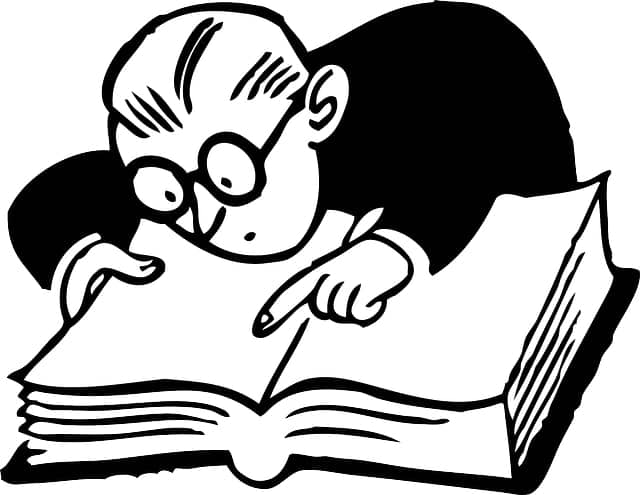What does the ending of Lord of the Flies mean? William Golding’s classic novel “Lord of the Flies” follows a group of British boys stranded on a remote island. The ending of Lord of the Flies has been the subject of debate for many years. Some argue that it is a hopeful ending, while others believe it is a dark and pessimistic conclusion. However, the true meaning of the ending lies somewhere in between.
What does the ending of Lord of the Flies mean? (Complete answer)
The ending of Lord of the Flies means that civilization, while offering some protection against our primitive instincts, is ultimately fragile. At the end of the novel, in Chapter 12, the boys are rescued by a naval officer who arrives on the island in response to their signal fire. As Ralph weeps for all that has been lost, he looks up to see the other boys staring at him with “the darkness of man’s heart.” This final image suggests that despite their rescue, the boys have not been completely saved from their own innate savagery.
This ending means that the line between civilized order and inherent human savagery is blurred, regardless of what we want to believe. The novel shows us how easily humans can descend into barbarity when left without societal constraints. The young boys started out as innocent and well-behaved children who attempted to build a new society on a deserted island. However, the boys quickly turned on each other.
The character of Jack represents this savage instinct in humans. He becomes increasingly violent and cruel as he gains power over the other boys. In contrast, Ralph symbolizes civilization and order. He tries to maintain a sense of control over their situation and keep them focused on being rescued.
However, even Ralph is not immune to his own inner demons. He participates in Simon’s murder and is later hunted by Jack’s tribe like an animal. Ralph’s experiences on the island show that no matter how civilized we may think we are, we all have a capacity for violence within us.
The naval officer’s arrival also highlights this theme. While he represents external authority and order, he is also part of a world at war where violence reigns supreme. His presence reminds us that there are no true safe havens from human savagery.
What is ironic about the ending of Lord of the Flies?
The irony in the ending of Lord of the Flies lies in Golding’s portrayal of the naval officer. Despite being a symbol of rescue and civilization, the officer fails to recognize or understand the true savagery that has consumed the boys on the island. His arrival represents hope for their deliverance, yet it also highlights how blind society can be to its own inherent darkness and violence. The officer’s presence serves as a stark contrast to the chaos and destruction that unfolded on the island, emphasizing the tragic irony that even in supposed civilization, human nature is not always as civilized as it may seem.
Why was Ralph crying at the end of Lord of the Flies?
Ralph was crying at the end of Lord of the Flies because he realized the tragic loss of innocence, witnessing firsthand the darkness that exists within human nature. He wept for the downfall and death of his loyal friend Piggy, who represented wisdom and reason in the midst of chaos. The tears symbolized Ralph’s profound grief for the shattered ideals and devastation caused by their descent into savagery on the deserted island.
Do they get saved at the end of Lord of the Flies?
In Lord of the Flies, while three boys – Piggy, Simon, and the littlun with the mulberry-colored birthmark – tragically die before the arrival of a naval officer, the remaining boys are ultimately saved.
Who arrives at the end of the novel Lord of the Flies?
At the end of the novel Lord of the Flies, a British Naval officer arrives on the island.
What is the true message of Lord of the Flies?
The true message of Lord of the Flies is that the inherent savagery and darkness within human nature can emerge when individuals are stripped of societal norms and authority, leading to the breakdown of civilization. It explores the fragility of human morality and the potential for cruelty and violence when individuals are left to their own devices.
Does Jack stay on the island in Lord of the Flies?
No, Jack does not stay on the island in Lord of the Flies. In the later part of the novel, Jack becomes the leader of a group of boys who indulge in savagery and violence. Eventually, the conflict between Jack and Ralph escalates, leading to a violent confrontation. In the end, Jack’s group is defeated by Ralph and his allies, and they are rescued by a passing naval officer who arrives on the island.
What happens to Jack at the end of Lord of the Flies?
At the end of Lord of the Flies, Jack’s power-hungry and savage nature leads him to become increasingly violent and irrational. He becomes the chief of his own tribe, which opposes Ralph’s leadership, and their conflict escalates into a brutal chase. However, just as Jack is about to kill Ralph, a naval officer arrives on the island and puts an end to their savagery. Jack is ultimately left defeated and dejected as the realization dawns upon him that his obsession with power has led to destruction and chaos.
Conclusion
In conclusion, the ending of Lord of the Flies means that while civilization may provide some protection against our primitive instincts, it is ultimately fragile and easily broken. The novel forces us to confront the uncomfortable truth that we are all capable of violence and savagery. It is a warning against complacency and a call to recognize our shared humanity.
